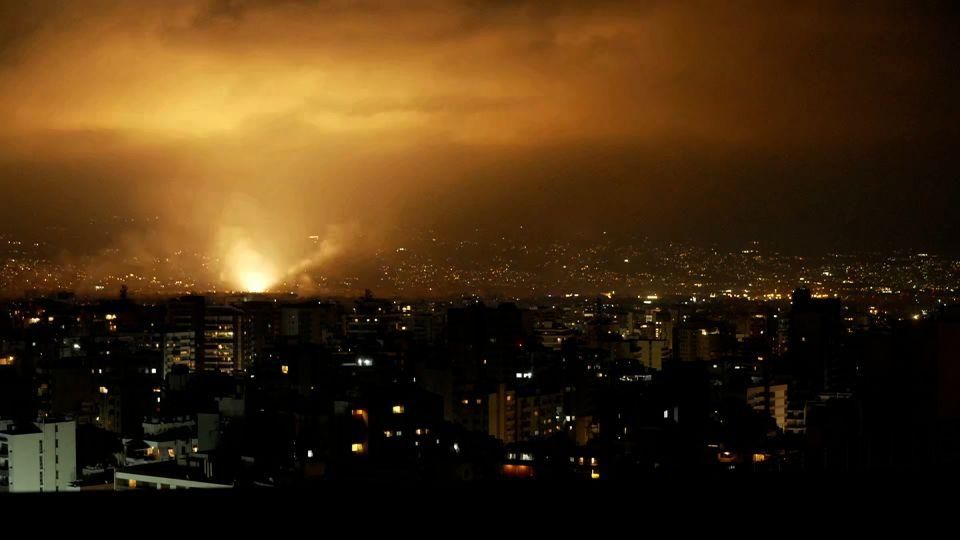By Eric Vandenbroeck and co-workers
By some called in Israel now called "War of
Revival" two weeks after Israel upended a
US-led ceasefire proposal with
Hezbollah, the US is not actively trying to revive the deal and
has resigned itself to trying to shape and limit Israeli operations in Lebanon
and against Iran rather than halting hostilities, US officials told CNN.
The US’ inability to
halt Israel’s intense bombing campaign and ground invasion of Lebanon,
which has killed over 1,400 people in less than three weeks and displaced over
1 million more, has raised questions about whether Benjamin Netanyahu’s government is
disregarding the Biden administration’s calls for more restraint like
it did in Gaza, leaving the White House again looking feckless.
Concerns within the
Biden administration are running high, officials say, that what Israel has
promised would be a limited operation will soon grow into a larger-scale and
prolonged conflict. US-led efforts to negotiate a ceasefire between Israel
and Hamas have also
floundered.
As with Gaza, US
officials say Israel was initially planning for a much larger ground incursion
into Lebanon before the US convinced it to scale back. But they also
acknowledge what they have learned over the last year, which is that the US’
influence is limited when it comes to Israel’s military operations.
Two weeks after
Israel upended a
US-led ceasefire proposal with
Hezbollah, the US is not actively trying to revive the deal and
has resigned itself to trying to shape and limit Israeli operations in Lebanon
and against Iran rather than halting hostilities, US officials told CNN.
The US’ inability to
halt Israel’s intense bombing campaign and ground invasion of Lebanon,
which has killed over 1,400 people in less than three weeks and displaced over
1 million more, has raised questions about whether Benjamin Netanyahu’s government is
disregarding the Biden administration’s calls for more restraint like
it did in Gaza, leaving the White House again looking feckless.
Concerns within the
Biden administration are running high, officials say, that what Israel has
promised would be a limited operation will soon grow into a larger-scale and
prolonged conflict. US-led efforts to negotiate a ceasefire between Israel
and Hamas have also
floundered.
As with Gaza, US officials say Israel was initially
planning for a much larger ground incursion into Lebanon before the US
convinced it to scale back. But they also acknowledge what they have learned
over the last year, which is that the US influence is limited when it comes to
Israel’s military operations.
Also, an explosion tore through the skies of Beirut on
Monday evening (local time). Nightly strikes have targeted the southern suburbs
of Lebanon’s capital city since September 27.
An explosion on Monday, October 7, lights up the sky
over Beirut's southern suburbs.

An explosion tore through the skies of Beirut on
Monday evening (local time). Nightly strikes have targeted the southern suburbs
of Lebanon’s capital city since September 27.
A camera
captured the explosion, which flashed in the skies for less than a second but
cast an orange light from the area that was targeted.
About half an hour
before the explosion was captured by CNN, Avichay Adraee, the Arabic spokesperson for the Israel Defense
Forces (IDF), warned residents that the IDF was going to target two areas in
the southern suburbs, Burj Al-Barajneh and Hadath, which he said were located near Hezbollah
facilities and interests.
At least seven
hospitals are in the no-go zones imposed by the Israeli military in the
southern suburbs of Lebanon’s capital, including Al Rassoul Al Azam Hospital
and St. Therese Hospital, CNN analysis of Israeli military evacuation orders
found.
In a later statement,
the IDF said the Israeli Air Force had conducted strikes on “terror targets
belonging to Hezbollah’s Intelligence Headquarters” on Monday night.
The IDF said it had also struck alleged Hezbollah
targets in southern Lebanon and the Beqaa area on Monday morning, including
“weapons storage facilities, terror infrastructure sites, and a launcher.”
At least seven
hospitals are in the no-go zones imposed by the Israeli military in the
southern suburbs of Lebanon’s capital, including Al Rassoul Al Azam Hospital
and St. Therese Hospital, CNN analysis of Israeli military evacuation orders
found.
The unsafe zones in Beirut’s southern suburbs, a
group of residential neighborhoods that also house Hezbollah’s
seat of power, encompass nearly 9 square kilometers (3.4 square miles).
As the Israeli
military battles Iran-backed militant groups on multiple fronts, the Middle
East faces its greatest upheaval in a half-century.
Israel will “continue to
fight,” Prime Minister
Benjamin Netanyahu vowed on the anniversary of the October 7
Hamas attacks. Israel
has said its goal in Gaza is to eliminate Hamas and bring back the remaining
hostages, but neither has
been achieved a
year into the war.
Israel intercepted
strikes from multiple directions on the anniversary, including five
projectiles launched
from northern Gaza, about five launched from Lebanon, and a
surface-to-surface missile fired
from Yemen.
Israel has launched a new offensive in northern Gaza,
where it has failed to defeat Hamas, and it continues to mull an
anticipated retaliation against Iran for last week’s barrage of
missiles.
For updates click hompage here